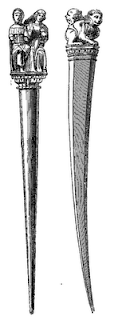Those of us who have seen the cover of the Time magazine of the week will retract in horror at what man can inflict on his own kind. Let me recall the picture of the woman with a gaping hole where her nose was. Mutilated, chopped off by the self proclaimed puritan Muslims of Afghanistan. Her crime, having born in a medieval society which is sliding faster into the black hole! The abhorrence of the act which will be displayed in her face as long as she is alive, pales into insignificance compared to the absolute silence of the Muslim intelligentsia all over the world who ostentatiously swear by woman’s rights, and respect for the fairer sex, and quote the holy text to that end.. It really is sheer nonsense and of no vain that the scholarly and erudite Muslims world over proclaim that such acts are un- Islamic. Does it really suffice and justify if we trumpet that we are against thieving while we stay mute to the very act of thieving? Such silence and tacit acquiescence is similar to the Hindus turning blind eye to the practise of self immolation on the funeral pyre -‘sati’.
I have been following articles and stories in various magazines and The Hindu on the French ban on the burqa – the full facial veil for women. And there was a programme on the BBC wherein quite a few young Muslim men and women where speaking on the ban and allied topics. Ironically even many of those young and educated women on that show swore by their Islamic identity- fair enough,but for which they considered the veil as synonym and indispensable. How would it be if Hindu women swear by their right to perform ‘sati’i and claim that if they are forbidden it is infringement on their inalienable religious rights? And also claim that performing sati is bringing out their religious identity and that it is display of piety etc? I do not now intent to dwell on the merits and otherwise of the French legislation against the facial veil. That is a different matter and prerogative of the law makers of that country.
People quote scriptures to suit their end. The devil does that often too.
And there are people every where who condone and clamour for such archaic and antediluvian practises.








.jpg)


.jpg)
.jpg)















